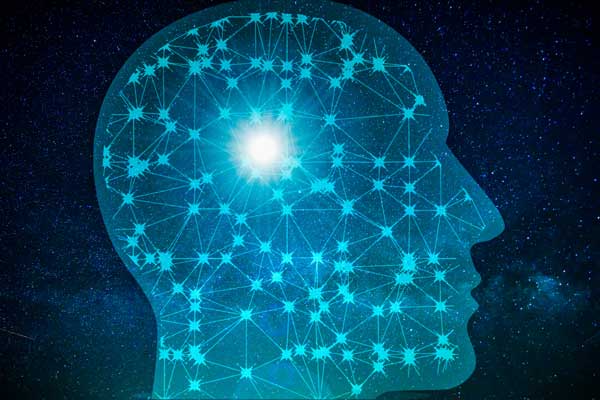Tesla’s new artificial intelligent robots cause a stir in daily life

[An image of a human head with interconnections inside. Photo credit to Pxhere]
Elon Musk, the CEO of Tesla, has announced the company’slatest creation, the Optimus humanoid bot, will be available for purchase in 2026.
According to the official Tesla website, the Optimus is designed to handle “unsafe, repetitive or boring tasks.”
A video demonstration posted on Tesla’s official X account showcases the bot’s precision in sorting battery cells.
The rapid advancements in AI technology have caused many people to lose their jobs across various industries.
From 2020 to 2023, Amazon laid off over 27,000 workers.
Similarly, Meta and Google have laid off 21,000 and 12,000 employees, respectively.
The sudden unemployment of many has raised concerns about the economic implications of AI replacing human workers.
This trend signifies a huge societal shift toward advanced technology.
AI’s influence has already seeped into daily activities.
While Tesla is famous for its autopilot cars, which utilize sensors and GPS to navigate and park autonomously, other AI applications are less conspicuous.
For instance, Lotte Mart uses AI technology to check the weight and condition of fruits like melons and peaches, marketing products as AI-selected to ensure optimal quality for customers.
In South Korea, online maps like Naver maps and Kakao Maps use AI to determine the shortest routes and estimated travel times, integrating AI into everyday life.
An infographic from the World Economic Forum's "The Future of Jobs 2023" report indicates that in 2022, the ratio of machines to humans in the workplace was 34 to 66 percent.
By 2027, this ratio is predicted to shift to 43 to 57 percent, nearly equal between humans and AI machines.
This projection suggests that within three years, robots could become a common presence in various job sectors.
The rise of AI and its implications prompt a serious question: Is AI beneficial or detrimental to humanity?
Although many movies have portrayed advanced machinery and robots as malevolent, AI has undeniably improved the quality of life.
However, it has also increased unemployment rates and the risk of human beings being outperformed by machines.
The AI in chess, which continuously learns and improves, exemplifies this challenge.
The future impact of AI on daily life remains uncertain, with both positive and negative potential outcomes.
Nonetheless, one fact is indisputable: technology will continue to advance.

- Eungyeol Han / Grade 11
- Westminster Canadian Academy

![THE HERALD STUDENT REPORTERS [US]](/assets/images/logo_student_us.png)
![THE HERALD STUDENT REPORTERS [Canada]](/assets/images/logo_student_ca.png)
